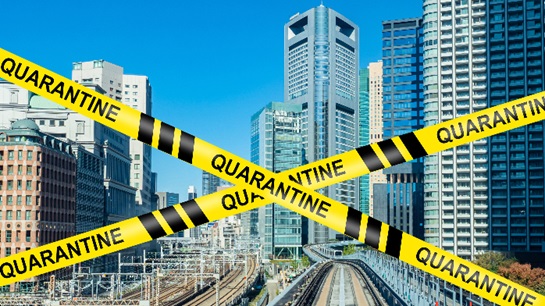 31-08-2020
31-08-2020
Reinsurers' COVID-19 bill triples as claims start to emerge

 Insurance Alertss
Insurance AlertssReinsurers' COVID-19 bill triples as claims start to emerge
Europe's four biggest reinsurers racked up an additional EUR3.46bn ($4.1bn) of coronavirus claims and reserves between them in the second quarter, taking the total for the first half of the year to EUR4.9bn, according to S&P Global Market Intelligence.
More claims are likely to come in amid the continued uncertainty about business interruption, credit and surety and life in particular. The bulk of the EUR1.45bn of coronavirus claims and reserves that Munich Re, Swiss Re,
Hannover Re reported in the first quarter came from event cancellation. SCOR SE, which has little exposure to event cancellation, did not book any coronavirus claims in the first quarter. In the second quarter, however, the reinsurers, including SCOR, started to add reserves for other business lines.
Event cancellation continued to be the biggest source of expected claims for Munich Re, but the largest single portion of Swiss Re's $2.54bn first-half claims charge was business interruption, which totalled $973m across its property and casualty reinsurance and corporate solutions primary insurance units.
Hannover Re said 40% of its EUR600m nonlife reinsurance coronavirus claims hit was for business interruption, with 25% for credit and surety, 20% for event cancellation and 15% for other classes. SCOR’s EUR248m nonlife reinsurance bill came mainly from credit, surety and political risk and business interruption.
Having booked no life reinsurance claims in the first quarter, the four companies combined registered life claims and reserves of EUR850m in the second quarter. The majority of the coronavirus claims booked to date comprises reserves for incurred but not reported (IBNR) claims, rather than paid claims or case reserves. Swiss Re's earnings presentation showed that 72% of its $2.54bn total was IBNR.
Analysts have said the trajectory of the virus will be a critical factor. If there was another lockdown on the scale of those seen between March and June, then there could possibly be additional claims from the lines of business that have already been hit.
Business interruption remains a big source of uncertainty because of the various court battles concerning coverage. Swiss Re CFO John Dacey has said that the company's first-half business interruption provision could absorb unfavourable court decisions "up to a point", it may have to re-evaluate reserves if judgments are "radically adverse to the industry."
Hannover Re's non-life reinsurance head, Sven Althoff, told analysts that if all the cases go against the insurance industry, the EUR240m it has set aside for business interruption "would not be sufficient." He also noted that the provision assumes no retroactive changes to business interruption coverage in the US.
A further issue is that there is typically a delay before reinsurers are notified about deaths and their causes, which could mean reinsurers having more coronavirus-related mortality claims than they think.
Source: Asia Insurance Review

http://www.insurancealertss.com//Insurance/Service/%20INDIAS%20BEST%20INSURANCE%20AGENT%20AWARDS%202020